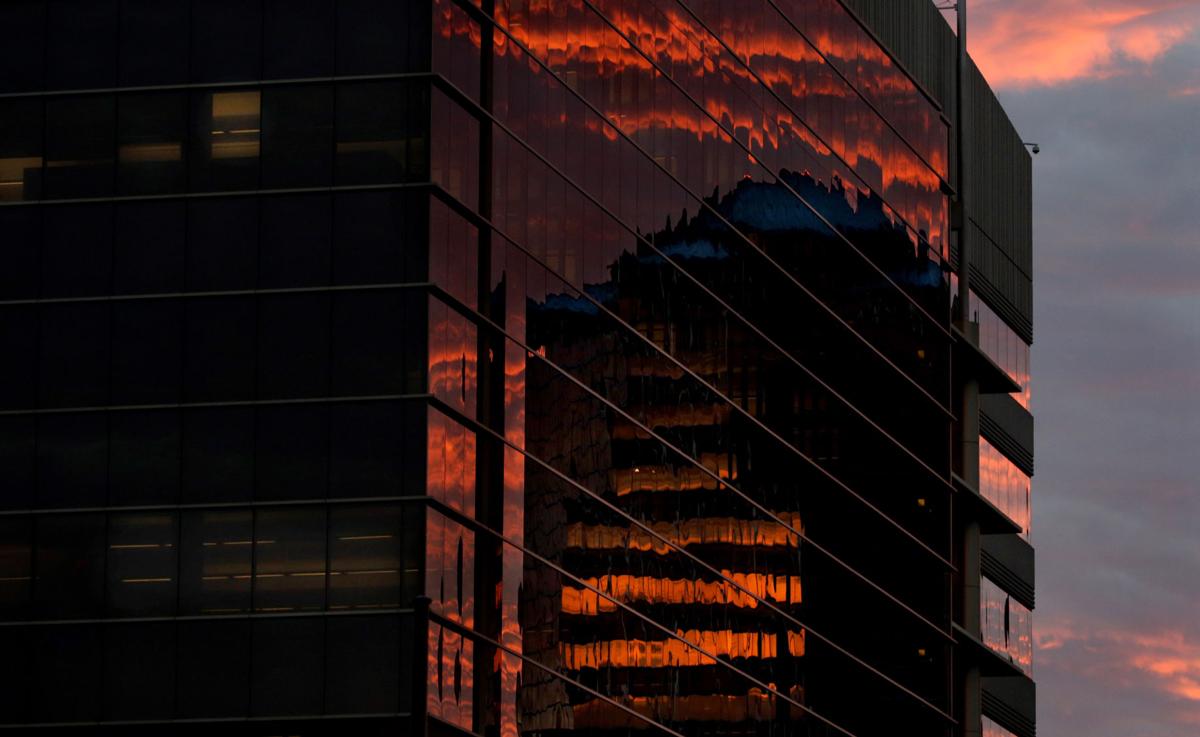More rain should be coming our way, Tucson.
After some late showers on Thursday, another round of rain and thunderstorms are likely this afternoon and evening, according to the National Weather Service. Parts of Tucson may see gusty winds and heavy rainfall.
But enjoy the sub 100-degree weather while you can. Starting Monday, Tucson is expected to climb into the triple digits again.
High: 94
Low: 75
What’s a Gustnado? 6 monsoon weather terms every Tucsonan should know
Haboob
UpdatedTimelapse collection of the massive haboob that rolled through Yuma County yesterday during sunset in Tacna. #azwx #monsoon2018 #haboob #timelapse pic.twitter.com/72j8DIqEkC
— Sean Parker (@seanparkerphoto) July 10, 2018
A haboob is more than just a funny-sounding word. It is essentially a powerful dust storm.
Haboobs are most common in dry areas, such as Arizona's desert.
Gustnado
UpdatedWe've received numerous pictures this evening from the southeast side of Tucson. This feature depicted is a gustnado, it looks like a tornado but the formation is completely different. These gustnados form along the leading edge of gust fronts and can cause minor damage. #azwx pic.twitter.com/PVt3Do0fub
— NWS Tucson (@NWSTucson) July 8, 2018
To the average person, a gustnado might look like a baby tornado. However, the National Weather Service says a gustnado's formation is actually much different.
Gustnadoes form along the edge of storms and cause a tornado-looking whirlwind, like the one seen above from July 2018.
Microburst
Updated
A microburst is said to have caused a giant art installation to crash down on Kino Parkway near 22nd Street a few years ago.
But what exactly is a microburst? It's a sudden, but powerful, gust of wind from a thunderstorm that can reach 100 miles per hour in speed. The National Weather Service says that microbursts can have a diameter as large as 2.5 miles and are powerful enough to cause extensive damage to trees, homes and other structures.
Dry lightning
Updated
Dry lightning is exactly what it sounds like — those beautiful lightning shows that happen when little to no rain is falling from the sky.
As you can imagine, wildfires are more likely to occur when dry lightning strikes.
Flash flood watch vs. flash flood warning
Updated
Water flows from a small wash into the Santa Cruz riverbed following monsoon rains near the Starr Pass Boulevard overpass, on July 23, 2020.
They all sound incredibly similar, but they aren't.
According to the National Weather Service, a flash flood warning is in place when a flash flood is happening or about to happen. What does that mean? If you're in an area that could be easily flooded, leave immediately.
Side note: A flash flood is a sudden flood that is often violent and can cause damages.
On the other hand, a flood warning is in place when dangerous weather is happening or about to happen. The same precautions should be taken for flood warnings and flash flood warnings.
A flood watch is put in place to help prepare people for potentially dangerous weather, such as floods. A flood watch is issued when there is a chance for flooding.
A flood advisory is less urgent than all of the above. The advisory is put in place to create awareness when a flood is not expected to be severe enough for a warning. The advisory is more so in place to alert people of potential inconveniences rather than any dangers.
Stupid Motorist Law
Updated
Yes, the Stupid Motorist Law is a real thing.
When drivers get stuck in a flood after purposely driving through it, the law allows rescue agencies to receive up to $2,000 for rescuing the driver.
Moral of the story: avoid flooded areas.





